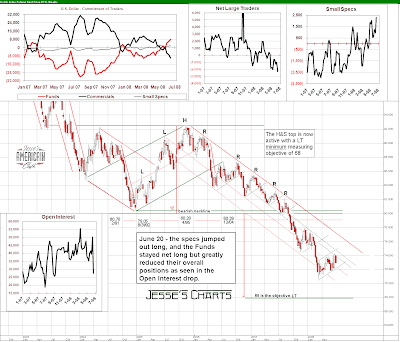How does one 'waive' a liability of this magnitude, since it is contingent upon the credit failure of the underlying instruments?
Someone must assume the loss and write it off, or at least artificially prop up the underlying security to avoid the effects of the loss. This is what the Federal Reserve is currently doing with about about 400 billion in dodgy debt for the banks.
We wonder if Ben and Timmy are thinking of getting the Federal Reserve into the insurance business with their magic money machine as well.
Are these jokers this brazen or are we just that dumb?
Bond insurers want $125bn of cover wiped out
By Aline van Duyn in New York
June 22 2008 23:30
Bond insurers such as Ambac, MBIA and FGIC are talking to banks about wiping out $125bn of insurance on risky debt securities in what could be the only way to limit the financial damage surrounding the bond insurers.
Discussions about “commuting” these insurance contracts, which were sold by bond insurers to banks in the form of credit default swaps, have taken on a renewed sense of urgency amid a rash of ratings downgrades in the bond insurance, or monoline, sector last week.
If agreements are struck about the value of these CDS contacts – and the discussions could take months – it could be significant for the entire financial system, which is clogged up by the uncertainty around the value of derivatives and complex bonds linked to mortgage-backed securities.
“If firms and their counterparties can get across the finishing line in their commutation negotiations, a shadow of uncertainty would be lifted from the monoline sector, with the prospect of better rating stability,” said Matthew Elderfield, chief executive of the Bermuda Monetary Authority, which regulates a number of bond insurers.
Bond insurers are in different stages of financial trouble, with smaller ones such as FGIC already rated in the junk category. Last week, Ambac and MBIA lost their last triple A credit ratings after Moody's downgraded them to double A and single A respectively. Both ratings have a negative outlook.
The talks centre on CDS contracts issued by bond insurers to guarantee payments on collateralised debt obligations, complex debt securities often backed by mortgages which have plunged in value amid a wave of foreclosures on mortgages issued in recent years.
The nominal value of these CDSs on CDOs is about $125bn, according to estimates by Standard & Poor's, and banks with the most exposure, such as Citibank, Merrill Lynch and UBS, have already taken writedowns related to the hedges as the credit quality of the bond insurers has deteriorated in recent months.
To commute an insurance contract, the policyholder usually receives an upfront payment in exchange for agreeing to tear up the policy.
There is little certainty about whether or not these CDSs will ever have to be paid out. In theory, bond insurers could be on the hook for billions of dollars, but it is possible that if market conditions stabilise and improve, their actual pay-outs might be low.

































